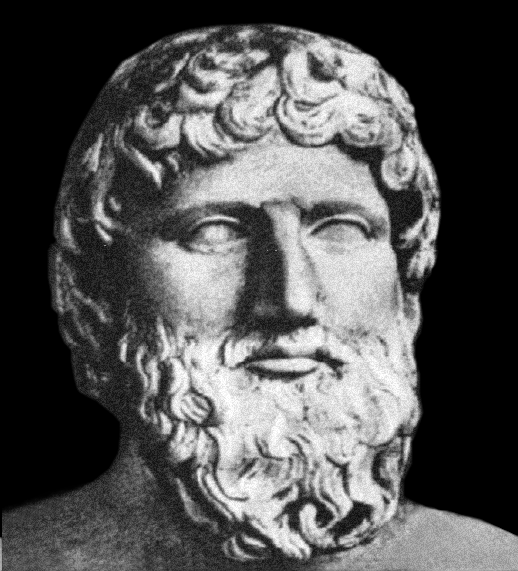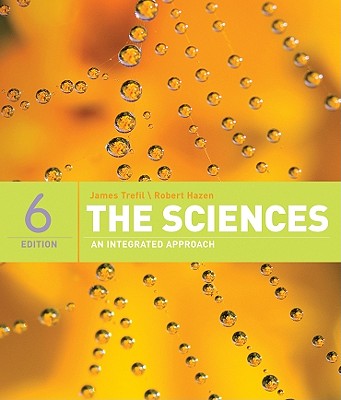"When I got my library card, that's when my life began." - Rita Mae Brown
| College Computer Music Philosophy | Miscellaneous What I believe (evolution and the brain) 70 Ways to Better Brainpower |
Δ College
![]()
Δ
College Resources![]()
University Materials - (click
book cover to
go to amazon.com)
Select links below picture to access training, videos,
and other resources
[email me]
Δ Free Online Classes by Video![]()
Yale Course List
University of Notre
Dame
MIT Course List
Princeton Course List
Berkeley Course List
Caltech Course List
Other Free Education - openculture
Other Free Education - Lecturefox
http://www.onlinecourses.com/?page=1
[email me]
![]()
Δ
01
(doc)
(pdf)
70-680 Configuring Windows 7 Study Guide
(compiled by me)
02
(doc)
(pdf)
70-687 Configuring Windows 8 Study Guide
(compiled by me)
03 (doc) (pdf) xxxxxxxx
04 (doc) (pdf) xxxxxxxx
05 (doc) (pdf) xxxxxxxx
06 (doc) (pdf) xxxxxxxx
[email me]
![]()
Δ
Δ Music
![]()
01 (doc) (pdf) xxxxxxxx
02 (doc) (pdf) xxxxxxxx
03 (doc) (pdf) xxxxxxxx
04 (doc) (pdf) xxxxxxxx
05 (doc) (pdf) xxxxxxxx
06 (doc) (pdf) xxxxxxxx
[email me]
![]()
Δ
Δ Philosophy
Resources
![]()
Δ
Yale Literature![]()

doc pdf
doc pdf
doc pdf
doc pdf
doc pdf
doc pdf

rtf pdf

doc pdf

doc pdf
doc pdf

doc
pdf

doc
pdf

doc
pdf

doc
pdf

doc
pdf

doc
pdf
Δ Philosophy
- (click picture to view wiki)![]()
The Thinker
Descartes
Plato
Socrates
Aristotle





1
1
2
vid
vid
1
vid
1
vid
vid
1
2
vid
vid
Nietzsche
Kant
Ockham
Hobbes
Berkeley





1
2
vid
1
2
vid
1
2
1
vid
1
Locke

Rawls
Nozick
Mill
James
1
vid
vid
Rousseau
Pascal
Δ Philosophy Documents![]()
Recommended
Reading

# document name
01
(doc) Yale_How_To_Write_A_Philosophy-Paper_(YaleLectures).rtf: 27KB
02
(pdf)
African Philosophy.pdf: 71KB
03
(pdf)
An Introduction to Philosophy - Fullerton.pdf: 840KB
04
(pdf)
Buddhism_Philosophy.pdf: 855KB
05
(pdf)
Changing the Ideology and Culture of Philosophy Not by Reason (Alone).pdf:
271KB
06
(pdf)
Descartes' Meditations on First Philosophy.pdf: 228KB
07
(pdf)
Environmental
Philosophy.pdf: 117KB
08 (pdf)
Essays on Education and Educational Philosophy.pdf: 290KB
09 (pdf)
Evolution and Philosophy.pdf: 212KB
10
(pdf)
Guide to the Study of Philosophy.docx: 30KB
11 (pdf)
Heraclitus.pdf: 151KB
12
(pdf)
History of Medieval.pdf: 3.167MB
13 (pdf)
KeyPointsofPhilosophers,PoliticalThinkers,andLeaders cheatsheet: 43KB
14 (pdf)
KNOW YOURSELF
SOCRATES.pdf: 60KB
15 (pdf)
Krishna_The_Man_and_his_Philosophy.pdf: 3.302MB
16
(pdf)
Logo and Philosophy Implementation.pdf: 1.521MB
17
(pdf)
OF OCCULT PHILOSOPHY or OF MAGICAL CEREMONIES.pdf: 246KB
18
(pdf)
Philosophers and Philosophy Noam Chomsky.pdf: 1.271MB
19
(pdf)
Philosophy 745_catalog_2008.pdf: 4.901MB
20
(pdf)
Philosophy and Philosophers.pdf: 364KB
21 (pdf)
Philosophy of Mathematics.pdf: 154KB
22
(pdf)
Philosophy of Mind and the Problem of Free Will in the Light of Quantum
Mechanics.pdf: 242KB
23
(pdf)
Philosophy of Money.pdf: 3.113MB
24 (pdf)
Philosophy of Science and Ethics.pdf: 121KB
25 (pdf)
Philosophy What I can do with this major.pdf: 11KB
26 (pdf)
Philosophy_cyclopedia.pdf: 2.947MB
27 (pdf) Plato.pdf: 960KB
28
(pdf) Poverty-Philosophy.pdf: 464KB
29 (pdf)
Pre-Socratic Greek Philosophy.pdf: 247KB
30 (pdf)
Principles
of Philosophy Rene Descartes.pdf: 365KB
31 (pdf)
Proof Theory and Philosophy.pdf: 1.062MB
32 (pdf) Russell, Bertrand - A History of Western Philosophy.pdf: 5.020MB
33
(pdf) Socrates.pdf: 50KB
34 (pdf)
Socrates_Blumenau_Ch4.pdf: 40KB
35 (pdf)
Spark Notes Meditations.pdf: 224KB
36 (pdf)
The Adventure of French Philosophy.pdf: 61KB
37 (pdf) THE APOLOGY OF SOCRATES.pdf: 64KB
38
(pdf) The Nature of Legal Philosophy.pdf: 61KB
39 (pdf)
The Philosophy and Neuroscience Movement.pdf: 441KB
40 (pdf)
The Philosophy of History.pdf: 1.690MB
41
(pdf) THE PHILOSOPHY OF HUMANISM.pdf: 1.360MB
42 (pdf)
THE PHILOSOPHY, PSYCHOLOGY AND PRACTICE OF YOGA.pdf: 498KB
43 (pdf)
The Practice of Philosophy.pdf: 100KB
44
(pdf)
The Republic by Plato.pdf: 1.277MB
45 (pdf)
The Star Trek Philosophy.pdf: 46KB
46 (pdf)
Three Philosophies of China Daoism, Confucianism and Buddhism.pdf: 38KB
47
(pdf)
TrialOfSocrates.pdf: 27KB
48 (pdf)
Types_of_philosophy.pdf: 103KB
49
(pdf)
What has AI in Common with Philosophy.pdf: 106KB
50
(pdf)
What Is Experimental Philosophy.pdf: 26KB
51
(pdf)
What Is Philosophy.pdf: 279KB
52
(pdf)
Whystudyphilosophy.pdf: 137KB
53
(pdf)
YogiPhilosophy.pdf: 830KB
54 (pdf) xxxxxxxx
55 (pdf) xxxxxxxx
56 (pdf) xxxxxxxx
57 (pdf) xxxxxxxx
58 (pdf) xxxxxxxx
59 (pdf) xxxxxxxx
[email me]
Δ
Philosophy - YouTube.com Videos![]()
Recommended
Series & Videos
Oxford University
The Public Philosopher
[access on youtube]

[access on youtube]

Introduction to Philosophy
Philosophy - Series
Philosophy of Liberty
[access on youtube]

[access
series on youtube]

[access on youtube]

Quick Philosophy
[email me]
![]()
Δ
Δ Miscellaneous
![]()
01 (doc) (pdf) xxxxxxxx
02 (doc) (pdf) xxxxxxxx
03 (doc) (pdf) xxxxxxxx
04 (doc) (pdf) xxxxxxxx
05 (doc) (pdf) xxxxxxxx
06 (doc) (pdf) xxxxxxxx
07 (doc) (pdf) xxxxxxxx
[email me]
![]()
Δ
Δ The Evolution of the Human Brain: How Does It Account for the Knowledge Explosion?
![]()
by M. A. Erickson
The evolution of the human brain is a point of much debate among evolutionary biologists. Paleoneurology, which studies the evolution of the human brain, seems to be caught on the horns of a dilemma.
In evolutionary biology, there is the thought that the human brain attained it's current size roughly 200,000 years ago: "The evolution of a large, complex brain has been the defining feature of the human lineage - although human brain size has not changed over the past 200,000 years." (http://www.newscientist.com/article.ns?id=dn7974 ).
This poses a huge question: if the incredibly complex human brain has been around for that long, why has the great advancement of human knowledge only taken place within the last couple of thousand years, leading to the great knowledge explosion we have seen in recent history?
Human knowledge builds upon itself; why didn't the knowledge explosion take place 80,000 or 100,000 years ago, if the human brain has been roughly the same size during this time? Were human beings (homo sapien) out there "beating around the bush," hunting bugs and rodents, for all those thousands and thousands of years, even though they were walking around with an incredibly complex brain?
This apparent problem has indeed puzzled the great thinkers of our time. A recent approach has been to label the evolution of the human brain a "Special Event." The normal pace of evolution was somehow set aside, and the human brain evolved much more rapidly than normal. From a recent study:
"Genes that control the size and complexity of the brain have undergone much more rapid evolution in humans than in non-human primates or other mammals, according to a new study by Howard Hughes Medical Institute researchers."
"The accelerated evolution of these genes in the human lineage was apparently driven by strong selection. In the ancestors of humans, having bigger and more complex brains appears to have carried a particularly large advantage, much more so than for other mammals. These traits allowed individuals with "better brains" to leave behind more descendants. As a result, genetic mutations that produced bigger and more complex brains spread in the population very quickly. This led ultimately to a dramatic "speeding up" of evolution in genes controlling brain size and complexity."
"People in many fields, including evolutionary biology, anthropology and sociology, have long debated whether the evolution of the human brain was a special event," said senior author Bruce Lahn of the Howard Hughes Medical Institute at the University of Chicago. "I believe that our study settles this question by showing that it was."
Lahn and his colleagues reported their data in a research article published in the December 29, 2004, issue of the journal Cell ."
(taken from an article on the Howard Hughes Medical Institute website, http://www.hhmi.org/news/lahn3.html )
This presents a recurring problem for the Darwinian theory of evolution. Evolutionary theory is built upon the premise that evolution occurs gradually, over hundreds of thousands of years of time. Whenever data occurs that doesn't fit the theory, the theory of very gradual change through natural selection is set aside, and a new theory of rapid change is introduced. This is how the Darwinian theory of evolution "absorbs" evidence that contradicts the theory. However, once you allow various exceptions to the theory of evolution, you no longer have the foundation upon which the theory is built, and the theory needs to be set aside. Then the search for new scientific theories, better aligned to the facts, can begin.
The idea of "punctuated equilibrium" is another example of changing the theory of evolution to account for rapid change. Because there is a lack of evidence in the fossil record of very gradual change from one species to another, the idea of "punctuated equilibrium" has been introduced, which says that there have been sudden spurts and dramatic changes caused by mutations in various species. Again, gradual change is set aside, in favor of a theory of rapid change.
Concerning the evolution of the human brain, there is a contradictory school of thought in Paleoneurology, that the evolution of the human brain has actually slowed down over the past couple of million years:
ScienceDaily (Dec. 29, 2006) - "Despite the explosive growth in size and complexity of the human brain, the pace of evolutionary change among the thousands of genes expressed in brain tissue has actually slowed since the split, millions of years ago, between human and chimpanzee, an international research team reports in the December 26, 2006, issue of the journal, PLOS Biology."
"We found that genes expressed in the human brain have in fact slowed down in their evolution, contrary to some earlier reports," says study author Chung-I Wu, professor of ecology and evolution at the University of Chicago. "The more complex the brain, it seems, the more difficult it becomes for brain genes to change...."
The article goes on to report, "Genes that are expressed only in the brain evolved more slowly than those that are expressed in the brain as well as other tissues, and those genes evolved more slowly than genes expressed throughout the rest of the organism."
"The authors attribute the slowdown to mounting complexity of interactions within the brain. "We know that proteins with more interacting partners evolve more slowly," Wu said. "Mutations that disrupt existing interactions aren't tolerated."
This article also acknowledges the problem presented by the apparent "rapid evolution" of the human brain: "Humans have an exceptionally big brain relative to their body size. Although humans weigh about 20 percent more than chimpanzees, our closest relative, the human brain weighs 250 percent more. How such a massive morphological change occurred over a relatively short evolutionary time has long puzzled biologists."
(University of Chicago Medical Center (2006, December 29). Complexity Constrains Evolution Of Human Brain Genes. ScienceDaily. Retrieved January 15, 2008, from http://www.sciencedaily.com/releases/2006/12/061226095421.htm
Has the evolution of the human brain rapidly increased, or has it slowed down over the past couple of million years? Scientists differ radically in their conclusions.
There are other unanswered questions that can only be mentioned here: How can scientists "prove," in any scientific sense of the term, the pace of genetic evolution within the human brain, going back 50,000 or 100,000 years? Are there any repeatable scientific experiments which can conclusively "prove" how fast the human brain evolved 50,000 or 80,000 or 100,000 years ago? Or are we dealing with great amounts of speculation in this area?
The even more difficult dilemma for evolutionary theory is to explain why the explosion in human knowledge has only taken place within very recent history, using the evolutionary time scale.
Human knowledge accumulates over time - that knowledge builds upon itself and increases, to where we have the explosion in knowledge that is so evident today. How did it happen? Why did it happen so suddenly? Two or three thousand years, as compared to 200,000 years, is a very short amount of time. Yet it is claimed that the human brain has remained the same size for the past 200,000 years. (some scientists may speculate that it has been the same size for the past 150,000 years or 175,000 years, but the obvious point still remains).
Human knowledge is transmitted through language, and then through writing. This transmission of knowledge is a key in the accumulation and development of human knowledge. Some evolutionary researchers have estimated that human speech developed around 150,000 years ago:
"Phillip Lieberman has investigated the origin of speech for many years and has used this research to form hypotheses about the evolution of language. Lieberman suggests that speech improved greatly about 150,000 years ago when the larynx descended into the throat. According to the work of Lieberman and his colleagues, this descension improved the ability of early homonids to make key vowel sounds. Whereas the Neanderthals had a vocal tract similar in many respects to that of a new born baby, the elongated pharynx of a modern adult human is thought to enable production of a more perceptible repertoire of speech sounds. Lieberman suggests that though Neanderthals probably had some form of language, they may have failed to extend this language because they lacked the physical apparatus for producing a more sophisticated set of speech sounds."
(From "The Evolution of Language," at http://www.brainconnection.com/topics/?main=fa/evolution-language6 ).
This estimate that human speech began to develop 150,000 years ago makes the problem even more obvious: How could homo sapiens (man) have developed speech that long ago, having an incredibly complex computer called the human brain, and yet not have made great advances in language, writing, and the transmission of knowledge?
It is estimated, based on archological discoveries, that writing developed around 3,500 B.C. in Mesopotamia (see "Ancient Mesopotamia: The Invention of Writing" / Oriental Institute of the University of Chicago, at http://oi.uchicago.edu/OI/MUS/ED/TRC/MESO/writing.html).
This makes for a huge, huge gap between the development of speech, and the development of writing. For humans to have 144,000 plus years of speech, without developing writing, seems totally incredible. The human mind is much more clever than that. How could people be able to speak for that long, (or even half that long) without attempting to communicate through written symbols?
In fact, no matter which way these estimates and theories are developed, there are huge problems. The idea that man evolved very gradually, over hundreds of thousands of years of time, is full of problems and contradictions. If one takes the position that the human brain has slowed down in it's evolution since separating from the chimpanzee over a million years ago, then we have an incredible computer which is incredibly silent over hundreds and thousands of years of time.
If one takes the position that the evolution of the brain was a "Special Event" in which the normal pace of evolution was somehow miraculously sped up, then you have abandoned the Darwinian theory of very gradual evolution through natural selection, and you have introduced a new theory, of rapid change.
We need to think seriously about how long 150,000 years is, and how incredible the human brain is: with this great computer having the ability to reason, to think, to speak and communicate with other human beings, wouldn't knowledge have advanced much more rapidly? 150,000 years is a long, long, long time for man's knowledge to be flat-lined, until the gradually increasing curve of human knowledge in recent human history. This knowledge curve is now accelerating at a greater and greater rate.
The fact that the human brain does not fit in to the timescale of evolutionary theory is perhaps why scientists have felt compelled to theorize that the evolution of the human brain was a "Special Event," in which the evolutionary progress of the human brain was somehow dramatically increased. As quoted earlier, "Although humans weigh about 20 percent more than chimpanzees, our closest relative, the human brain weighs 250 percent more. How such a massive morphological change occurred over a relatively short evolutionary time has long puzzled biologists." http://www.sciencedaily.com/releases/2006/12/061226095421.htm
In "The Origin of the Species," Charles Darwin himself acknowledges that without a complete dependence on very slight, successive modifications to organisms through natural selection, his whole theory would break down: "If it could be demonstrated that any complex organ existed, which could not possibly have been formed by numerous, successive, slight modifications, my theory would absolutely break down." (Charles Darwin, The Origin of Species, p. 189).
Well, it has already been demonstrated, even by Darwinian evolutionists themselves, that rapid change must be introduced into evolutionary theory in various instances (two of which were cited above), to explain the facts. Thus, by his own admission, Darwin's theory has broken down.
Perhaps it's time to leave the sacred soil of evolution, and explore new options. Is it possible that the reason the knowledge explosion has only happened gradually within the last couple of thousand years, with greater and greater acceleration in recent time, is that human beings haven't been around that long, relatively speaking? A more recent appearance of man would explain the "massive morphological change that has long puzzled biologists," the great difference in brain size between humans and chimpanzees. A more recent appearance of man would also explain why the rapid advancement in knowledge has only occurred relatively recently. For man's incredible computer, the human brain, to be silent for hundreds of thousands of years is just not a viable option.
Is it possible that man is the product of some kind of creative intelligence, introduced onto planet earth? Rather than an automatic stonewalling by much of the academic community, why not allow for the possibility that there may be higher intelligence in the universe than ourselves? Perhaps thinking that we are the highest intelligence in the universe is the current day equivalent of thinking that the sun revolves around the earth. In other words, it is a paradigm that is outdated.
One could also make great advancements in the pursuit of honesty and truthfulness, and rather than engage in endless amounts of scientific speculation about what happened 100,000 or 500,000 or 1,000,000 years ago, we could simply admit that, scientifically speaking, we just don't know for certain what happened that long ago, in regard to man's origins. Some of the scientific community needs to recover the clear distinction between proven scientific facts (proven by repeatable scientific experimentation), and large amounts of speculation.
In light of the knowledge explosion, and our knowledge of the human brain, the theory that humankind evolved from lower primates gradually over hundreds of thousands of years of time is just not fitting in with the facts.
Δ [share on facebook]
[email me]
Evolution & The Human Brain
Bibliography
1. Inman, Mason, "Human Brains Enjoy Ongoing Evolution." NewScientist, 09 September 2005, http://www.newscientist.com/article.ns?id=dn7974
2. "Human Brain Evolution Was a 'Special Event'" Howard Hughes Medical Institute, December 29, 2005, http://www.hhmi.org/news/lahn3.html
3. "Complexity Constrains Evolution Of Human Brain Genes." Science Daily, Dec. 29,2006, http://www.sciencedaily.com/release/2006/12/061226095421.html
4. Peterson, Bret, "The Evolution of Human Language." P.6, Brain Connection, http://www.brainconnection.com/topics/?main=fa/evolution-language8
5. "Ancient Mesopotamia: The Invention of Writing." The Oriental Institute of the University of Chicago, http://oi.uchicago.edu/OI/MUS/ED/TRC/MESO/writing.html
*Human Brain graphic - Creative Commons Attributions share-alike at: http://creativecommons.org/licenses/by-sa/3.0/deed.en
Δ
![]()
Δ 70 Ways to Better Brainpower
![]()
1. Breath deep. More air in means more oxygen in the blood and therefore in the brain. Breath through your nose and you'll notice that you use your diaphragm more, drawing air deeper into your lungs. Several deep breaths can also help to relax you, which is conducive to clearer thinking.
2. Meditate. A simple meditation you can do right now is just closing your eyes and paying attention to your breath. Tensing up your muscles and then relaxing them to start may help. When your mind wanders, just bring your attention back to your breath. Five or ten minutes of this will usually relax you, clear your mind, and leave you more ready for any mental task.
3. Sit up straight. Posture affects your thinking process. Prove it to yourself by doing math in your head while slouching, looking at the floor and letting your mouth hang open. Then do the mental math while sitting up straight, keeping your mouth closed and looking forward or slightly upwards. You'll notice that it's easier to think with the latter posture.
4. Phosphotidyl Serine (PS). This supplement has been shown in clinical studies to increase lucidity and rate of learning. It activates cell-to-cell communication, helps regulate cell growth, improves the functioning of the special receptors found on cells, and prepares cells for activity. In other words, it can help your brain power. It's also thought to reverse memory decline. Phosphatidylserine has no known adverse side effects.
5.Vinpocetine. This extract, derived from an alkaloid found in the Periwinkle plant, is used as a cerebral vasodilator. It increases blood flow to the brain, which improves its oxygenation and thereby increases mental alertness and acuity. Research suggests it may also be the most powerful memory enhancer available to date.
6. Gingko Biloba. The leaves of this tree have been proven to increase blood flow to the brain. The trees are often planted in parks. My friends and I used to eat a few leaves when we wanted a brain boost. It is also inexpensive, if you buy the capsules or tea at any health food store.
7. Saint John's Wort. This is a common weed that may be growing in your yard. Although it's brain enhancing qualities are less documented (studies do show it's usefulness for treating long-term depression), many people swear by it's temporary mood-elevating effect, and our brains tend to function better when we are happy. It is inexpensive, but I used to just collect it in the yard and make tea of it. (Hyperacum Perforatum, if you want to look it up by it's botanical name.)
8. Good thinking habits. Just use a problem solving technique for several weeks and it will become a habit. Redesign everything you see for a while, and that will become a habit. You can develop many good thinking habits with some effort, and then be more resourceful effortlessly from that point on. Use the power of habit.
9. Use dead time. This is time that is otherwise wasted or just under-utilized. Driving time, time spent in waiting rooms, or even time spent raking your yard can be included in this. With a tape player and a trip to a public library, you can start to use this time to listen to books-on-tape. You may spend 200 hours a year in your car. What could you learn in that time?
10. Learn a language. Learning a new language has been shown to halt the age-related decline in brain function. It also introduces your mind to new concepts and new ways of looking at things (in English we are afraid, whereas in Spanish we have fear). It is one of the best brain exercises.
11. Rosemary. This common herb may have an effect on the brain when the scent is inhaled. We are waiting for the research, but some people swear that just sniffing rosemary wakes up their brain. It seems safe, so if you have rosemary in your spice rack, give it a try.
12. Mindfulness exercises. Concentration and clear thinking are more or less automatic once you remove distractions. Learn to stop and watch your busy mind. As you notice things that are subtly bothering you, deal with them. This might mean making a phone call you need to make, or putting things on a list so you can forget them for now. With practice, this becomes easier, and your thinking becomes more powerful.
13. Write. Writing is good for your mind in a number of ways. It is a way to tell your memory what is important, so you'll recall things more easily in the future. It is a way to clarify your thinking. It is a way to exercise your creativity and analytical ability. Diaries, idea-journals, poetry, note-taking and story-writing are all ways to use writing to boost your brain power.
14. Listen to Mozart. In a study at the University of California, researchers found that children who studied piano and sang daily in chorus, were much better at solving puzzles, and when tested, scored 80% higher in spatial intelligence than the non-musical group. In another study, 36 students were given three spatial reasoning tests on a standard IQ test. Just before the first test, they listened to Mozart's sonata for Two Pianos in D Major, K. 448 for ten minutes. Before the second test, they listened to a relaxation tape. Before the third, they sat in silence. The average scores for all 36 students: 1st test: 119. 2nd test: 111. 3rd test: 110. A nine-point boost from Mozart!
15. Develop your intuition. Intuition can be an important part of brainpower. Einstein and others have relied heavily on their intuitive hunches. See Chapter 25 for tips on how to develop your intuition.
16. Avoid foods that cause subtle allergies. These can include wheat, corn, peanuts and dairy products. Watch yourself to see if you have a problem with any of these. They cause digestive problems and brain fog in some people.
17. Sleep better. As long as you get a certain amount of sleep - probably a minimum of five hours - the quality seems to be more important than the quantity. Also, short naps in the afternoon seem to work well to recharge the brain for some people.
18. Caffeine. The research shows higher test scores for students who drink coffee before major exams. My chess game gets better. In other studies, it has been shown that too much caffeine leads to poorer quality decisions. Caffeine affects individuals differently, and has some nasty long-term side effects for some of us, but short-term - it works!
19. Avoid sugar. Any simple carbohydrates can give you "brain fog." Sometimes called the "sugar blues" as well, this sluggish feeling makes it hard to think clearly. It results from the insulin rushing into the bloodstream to counteract the sugar rush. Avoid pasta, sugars, white bread and potato chips before any important mental tasks.
20. Hypnosis audios. The power of suggestion is real, and one way to use it is with hypnosis tapes, CD's or downloads. This type of brain "programing" has more evidence for it than subliminals.
21. Speed reading. Contrary to what many believe, your comprehension of material often goes up when you learn to speed-read. You get to learn a lot more in less time, and it is definitely a good brain exercise.
22. Exercise. Long term exercise can boost brainpower, which isn't surprising. Anything that affects physical health in a positive way probably helps the brain too. Recent research, though, shows that cognitive function is improved immediately after just ten minutes of aerobic exercise. If you need a brain recharge, you might want to walk up and down the stairs a few times.
23. Imaginary friends. Talking to and getting advice from characters in your mind can be a great way to access the information in your subconscious mind. Imagine a conversation with a person who has a lot of knowledge in the area you want advice in.
24. Develop your creativity. Creativity gives power to your thinking. Raw computation can be done by computers now, but humans provide the creative thought that shapes our world. See Chapter 24 for tips on developing your creativity.
25. Learn more efficiently. When you decide to learn something, take notes from the start. Leave each "learning session" with a question or two in mind, to create anticipation and curiosity. Take short breaks, so there will be more beginnings and endings to your studies (Things learned at the beginning or ending of a class or session are remembered better).
26. Use techniques for clear thinking. Cluttered rooms and offices can contribute to cluttered thinking. Organize a space for mental work. Sigh, stretch, and take a deep breath before you start on a tough mental job. Plan some distraction-free time for brainstorming.
27. Brain wave entrainment. The newest brain wave entrainment products are powerful tools for altering your brain function. Some will almost immediately relax you, while others will put your brain waves in a pattern that is most conducive to analytical thinking.
28. Creatine. This is a compound found in meat, used by athletes to help build muscle. Now the evidence is here to show that it helps your brain as well. Proceedings B , a journal published by the Royal Society reports that the research showed improvement in working memory and general intelligence resulting from creatine supplementation. The dose used in the study was 5 grams per day. This is about the level used to boost sports performance, and is as much as you'd normally get in four pounds of meat, according to lead researcher Dr. Caroline Rae.
29. Talk. Talking is only good for the brain if you are actually exercising it, of course. Try explaining something that you don't understand very well to a friend, though, and you'll notice that the process of explaining will help you clarify your understanding.
30. Do something you enjoy. This is a way to both lower stress and rev up your brain. The key is to do something active. Watching TV doesn't count. Whether it is playing Scrabble or building birdhouses, when you are actively engaged in an activity that you enjoy, you worry less about things and you start to think better.
31. Adjust your beliefs. Believe you are smarter, and you'll become smarter. For this, affirmations may work, but even better is evidence. Make a note of your successes. Tell yourself, "Hey, that was really creative," when you do something creative. When you have a good idea, make a note of it. Gather the evidence for your own intelligence and you'll start to experience more of it.
32. Brain exercises. Do math in your mind while driving. Think of a new use for everything you see. Regular use of the brain has been shown to generate new neuronal growth, and even halt the decline of mental function that often comes with age.
33. Learn new things. This is another way to exercise the brain. It can also be done with little time investment if you use books-on-tapes while driving.
34. Walk. Exercise has been shown to benefit the brain, and walking is one of the best exercises for many. It is low impact, and the rhythmic nature of it seems to put you in a state that is very conducive to clear thinking. In fact, carry a tape recorder with you to take notes, and a twenty minute walk can be a great way to solve problems.
35. Model others. Find others that are creative, intelligent, or very productive. Do what they do, and think what they think. This is a key principle of neuro-linguistic programming. Be careful about taking their advice, though. Successful people often don't really understand why they are successful. Do what they do, not what they say.
36. Eat fish. Eating fish actually speeds up brain waves, and improves concentration. Researchers have also found an almost perfect correlation between intake of fish and lowered levels of depression in the various countries of the world. The U.S. has 24 times the incidence of depression as Japan, for example, where fish intake is much higher.
37. Avoid unnecessary arguments. When you defend a position too vigorously, especially when it is just to "win" the argument, you invest our ego into it. This is not conducive to the easy acceptance and use of new information. In other words, you put your mind in a rut, and you dig it deeper with each argument. Debate can be a valuable thing, but when the ego takes over, the mind closes a little. This is not a recipe for better thinking.
38. Laugh. The release of endorphins caused by laughter lowers stress levels, which is good for long term brain health. Laughter also tends to leave you more open to new ideas and thoughts.
39. Play. Stimulating the brain causes measurable changes in the structure of the brain. New connections are made and new brain cells are grown. Intellectual play, as well as any playing that involves hand-eye coordination stimulates the brain.
40. Do puzzles. Crossword puzzles, lateral thinking puzzles, and even good riddles are a great way to get brain exercise. You can work on them while waiting for a dentist appointment, or on the bus, if you are short on time.
41. Sing. When you are alone in your car, try singing about something you are working on. This taps into and exercises your right brain. Have you ever noticed how it is easier to rhyme when you sing than when you just speak or write? This is because the right brain is better at pattern recognition. By doing this brain exercise regularly you can train yourself to tap into the power of the right brain. This will make you a more effective problem-solver. If you doubt the distinction between the hemispheres of the brain, look at how stutterers can stop stuttering as soon as they start singing. Try it.
42. Nuts. University students in Brazil and other South American countries often eat several Brazil nuts before an exam, believing they are good for their mental power. The evidence is starting to confirm this. Other nuts that have minerals and amino acids that are beneficial to the brain include almonds and walnuts.
43. Olive oil. High in mono-unsaturated fat, olive oil has been shown to improve memory. A cheaper alternative is canola oil, but this hasn't been studied much yet.
44. Vitamin supplements. In studies, children scored higher on tests when on a regimen of daily vitamin supplements. "Experts" will tell you that if you eat a balanced diet, you don't need supplements, which, given the culture here, is really just a sales pitch for vitamins, isn't it? Who eats a perfectly balanced diet?
45. Fiber. It isn't just what goes in, but what comes out that is important to brain function. Toxic build-up in the body and brain can cause "brain fog." People often report clearer thinking as one of the benefits of curing their constipation.
46. Self awareness. This may not seem important to brain power, but it is. When you know yourself better, you can avoid the usual effects of ego and emotion in your seemingly "rational" thinking. Or you can at least take it into account. Watch yourself, especially as you explain things or argue.
47. Motivate yourself. Motivation is as important to mental tasks as it is to any other. Learn a few simple techniques for self motivation. You can start with those in Chapter 8.
48. Avoid too much stress. Neuropsychiastrist Richard Restak, M.D., form the George Washington University School of Medicine and Health Services, sums up the research thus: "Stress causes brain damage." Long term stress has repeated been shown to hurt the brain, not to mention the rest of the body. Learn a few stress reduction techniques if you get stressed out often.
49. Get educated. Scientists have known for a while that the less educated get alzheimer's more frequently. Education in any area seems to make the brain stronger.
50. Avoid too much fat. In laboratory studies, animals consistently learn slower when they are on a diet high in fat. Type of fat may make a difference, so you may want to stick to using olive oil and other non-saturated fats. Saturated fats have been shown to actually stunt the growth of brain cells.
51. Eat less. Overeating has the immediate effect of redirecting more blood to the digestive process, leaving less for the brain. Long term, it can cause arterial obstructions that reduce blood flow to the brain permanently. In at least one study, rats on a restricted-calorie diet had more brainpower.
52. Avoid suspect foods. There is evidence that the following foods can be bad for your brain: Artificial food colorings, artificial sweeteners, colas, corn syrup, frostings, high-sugar drinks, hydrogenated fats, sugars, white bread, and any white-flour products.
53. Eat breakfast. When kids who didn't eat breakfast started to eat it, researchers found that their math scores went up a whole grade on average.
54. Avoid diabetes. The development of diabetes coincides with a dropping of IQ scores. In other words, if you want to maintain your brain power, follow your doctors dietary recommendations for preventing or treating diabetes.
55. Eat foods high in antioxidants. Antioxidants protect all your cells, including brain cells. Some of the foods highest in antioxidants include: prunes, raisins, blueberries, blackberries, garlic, kale, cranberries, strawberries, spinach, and raspberries. In one test, rats had age-related mental decline reversed by eating the equivalent of a 1/2 cup of blueberries per day.
56. Drink wine. In moderation, red wine can be good for the brain, it seems. It is rich in antioxidants, which protect brain cells. One glass per day for women and two for men is usually considered a safe and moderate amount.
57. Use alcohol in moderation. In a study at the University of Indiana School of Medicine, elderly light drinkers (fewer than 4 drinks per week) scored higher on tests of thinking abilities than non-drinkers. Those who drank 10 or more drinks per week scored lower. It is known that alcohol can kill brain cells, so moderation seems to be the key.
58. Folic acid. According to one study, 200 micrograms of folic acid, the amount found in 3/4 cup of cooked spinach, alleviates depression and reverses memory loss.
59. Potential brain foods. Other foods that may be good for your brain include: Avocados, bananas, lean beef, brewer's yeast. broccoli, brown rice, brussel sprouts, cantaloupe, cheese, chicken, collard greens, eggs, flaxseed oil, legumes, oatmeal, oranges, peanut butter, peas, potatoes, romaine lettuce, salmon, soybeans, spinach, tuna, turkey, wheat germ, and yogurt.
60. Vitamin E. Jean Carper, in researching her book, "Your Miracle Brain," found that many brain researchers are taking 400 I.U.s of vitamin E daily. It is an antioxidant, and reduces the clogging of blood vessels, including those going in the brain.
61. Vitamin C. Taken in the form of orange juice in a study at the Texas Women's University, vitamin C increased the IQ scores of children.
62. Selenium. 100 micrograms of selenium has been shown to be a mood-elevator. Your brain almost certainly functions better when you are in a better mood. Foods rich in selenium include Brazil nuts and garlic.
63. Alpha-lipoic acid. Alpha-lipoic acid (10 to 50 milligrams daily) improves memory and protects nerve cells.
64. Inositol. This is a safe and natural substance that is often grouped with the B-vitamins. It reduces stress and promotes clear thinking. It contributes to energy production, and so can "wake you up." Animal studies show a measurable increase in physical activity for up to five hours after taking it.
65. Huperzine A. This is a compound extracted from the Chinese club moss. Researchers both in Israel and the U.S. have used it to treat alzheimer's. It improves memory and learning an seems to be very safe.
66. Ask questions. This is a great way to keep your brain in shape. Just get in the habit of asking questions often, even if it is only in your own mind. Why are taller buildings better? what is the purpose of curbs? Ask anything that comes to mind, and ponder the possible answers.
67. Sniff basil. This another of the herbs that may be good for your brain. No studies yet, but many report a brain boost from smelling basil.
68. Temperature. Many people have noted that they think better at certain temperatures. In general, it seems that being slightly cool, but not uncomfortable, is most conducive to good thinking. Try experimenting on yourself to see what temperature works best for you.
69. Use systems. From the time I was ten years old, 12 x 49 was always (12 x 50) - 12. It's easier to figure in your head this way (588, by the way). I didn't get any credit for my personal algorithms then, but they are selling these shortcuts on late-night TV now, because they work. You can find your own easier ways to do mental math or other mental tasks, or read a good book on them.
70. Make a brainpower plan. It takes about twenty to thirty days of repetition to establish new habits, many psychologists will tell you. This means that when you create your plan for better brainpower, be sure you plan to use that new problem solving technique, or eat those new brain foods for at least three weeks. You can use many of the brain boosters here and get immediate results, but it is creating new habits that will give you the most brainpower.
Δ [share on facebook]
[email me]
![]()
About
I'm a Computer
Systems Engineer
Living and loving life
........................................
Author
...

![]()
![]()
![]()
![]()
![]()











